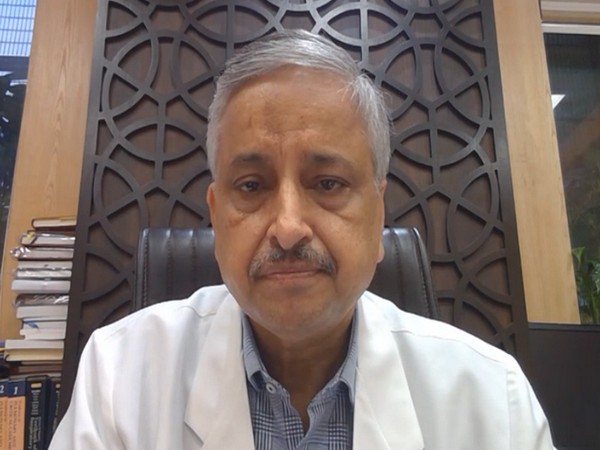Convalescent plasma therapy cannot be given to everyone, may be useful in early stage of COVID-19: AIIMS Director
All India Institute of Medical Sciences (AIIMS) Delhi Director Dr Randeep Guleria has said that convalescent plasma therapy (CP) may be useful in early stages in a COVID-19 patient who is having a moderate disease and it should have sufficient antibodies to be effective.

- Country:
- India
By By Rohit All India Institute of Medical Sciences (AIIMS) Delhi Director Dr Randeep Guleria has said that convalescent plasma therapy (CP) may be useful in early stages in a COVID-19 patient who is having a moderate disease and it should have sufficient antibodies to be effective.
"With convalescent plasma therapy, there are two things that we need to understand. One is the type of plasma that we are giving and the second is the patient that we are giving to. The convalescent plasma that we give has to have sufficient antibodies to be effective when given to a patient suffering from COVID-19," Dr Guleria told ANI. "It cannot be given to everyone. We need to have more data. But the study did show that when it was being used in our country at that point in time, it did not have many benefits," he added.
He said convalescent plasma therapy may be useful "in early stage in a patient who is having a moderate disease and may be progressing". A study by India Council of Medical Research (ICMR) study reported on Tuesday said that CP therapy did not help in reducing deaths due to coronavirus.
Dr Guleria also said that people have started travelling or moving to smaller cities and from there to certain parts of rural India. "That is why we are seeing more spread of the infection in smaller towns. And therefore, we need to have different strategies in these areas if we want to control the infection. There is also the 'COVID-19 fatigue behaviour' that has set in. Now people have started becoming frustrated and fed up of the measures that has to be taken," he said.
On Delhi government's decision to allow testing without prescription, Dr Guleria said earlier it was felt that people who had symptoms were not being able to get themselves tested because they first needed a doctor's prescription. "Such cases were causing delay. Even a few days delay means that person can spread the infection to others. So to make it more efficient, the testing on demand has been introduced," he said.
He said there will be a number of patients who will have some degree of problems after recovering from COVID-19. "When we talk about the post COVID care, it is important for us to understand that this is what we are realising as our next phase of COVID-19 management strategy, that there will be a number of patients who will have some degree of problems after recovering from COVID-19. The increase in cases that we have seen in certain places such as Delhi, this is like a resurgence of the cases that you could say is the second wave in term of new cases," he said.
Dr Guleria said the government is working aggressively on the vaccine. "We have three vaccines which are in various stages of clinical trials. The Oxford vaccine is also doing well but there are some issues regarding its side effects that will be sorted soon. But I think the trials are going rapidly and if we are able to show that these vaccines are really safe and they give good immunity then maybe by the end of the year or by early next year, we should be able to have a vaccine available in our country," he said. (ANI)
(This story has not been edited by Devdiscourse staff and is auto-generated from a syndicated feed.)
- READ MORE ON:
- Randeep Guleria
- COVID
- Delhi
- AIIMS
- India
ALSO READ
My taxable income plummeted to Rs 680 in 2021-22 due to Covid-19 losses: BJP's Chandrasekhar
MSMEs in TN crushed by triple impact of demonetisation, GST, and unplanned COVID lockdowns: Congress
Health News Roundup: Sanofi to overhaul US operations of vaccines, cut jobs; After COVID, WHO defines disease spread 'through air' and more
SC adjourns for July Ramdev's plea for clubbing of FIRs on his remarks on efficacy of allopathy to cure Covid-19
Health News Roundup: USDA confirms cow-to-cow transmission a factor in bird flu spread; After COVID, WHO defines disease spread 'through air' and more










